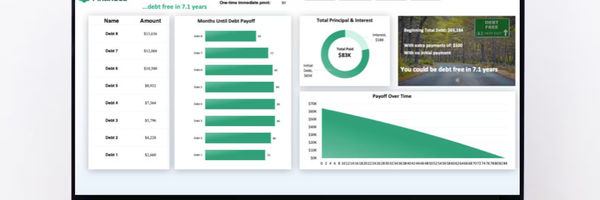When tax season comes around, you might be curious about what happens if you file your taxes late. This might be especially true if you don't owe any money to the IRS.
It's important to understand the potential consequences. Even though it may seem simple, there can still be repercussions. The good news is that if you don't owe any federal income tax, the negative effects are usually less severe.
That said, it's always a good idea to keep your tax filings up to date. This helps avoid future complications and maintain good standing with the tax authorities.
Your tax return can also impact future loan approvals, financial assistance programs, and your overall financial record. So take a deep breath, gather your documents, and get your tax return filed – you'll be glad to have it taken care of.
Understanding the Tax Filing Process
Filing taxes might seem overwhelming. However, knowing your responsibilities can motivate you to stay on top of things. You might also be motivated by the possible repercussions of filing late.
Figuring Out If You Need to File
Filing Requirements: You should figure out if you need to file a federal income tax return. This usually depends on factors such as your income, filing status, and age.
The IRS Free File service is super useful if you're on the hunt for a budget-friendly way to file your taxes online.
Income Thresholds: Make sure to see if your income is above the limit that requires you to file. These limits can vary and are available on the IRS website.
Dependent Status: If someone else says you're their dependent, you might have different requirements for filing.
Special Circumstances: Sometimes you might have to file under special tax situations. This is true even if your income is below the usual filing thresholds.
Consequences of Filing Late If You Don't Owe Any Money
Not Hitting the Tax Deadline: There's usually no penalty for filing your taxes late if you're expecting a refund. However, filing after the deadline may cause a delay in receiving your refund.
Filing Extension: If you can't meet the tax deadline, you might want to think about asking for a filing extension with Form 4868. This way, you'll have until October 15 to file and won't face any penalties. Just keep in mind that it doesn't give you more time to pay if you end up owing.
Advantages of Filing On Time: Even if you don't have to pay taxes, there are advantages to filing your taxes on time or early:
Refunds: If the government owes you, the faster you file, the sooner you'll get your refund.
Avoid Complications: Filing on time helps you avoid problems down the road, like bad credit or issues with loan applications.
Future Tax Credits: Some tax credits might only be claimable if you file your tax returns within a specific time period, regardless of whether you owe taxes or not.
Using IRS electronic filing is usually the quickest and most accurate way to submit your tax return. Plus, it can speed up any refunds you're owed. So go ahead and make the most of these tools and resources to make filing your taxes a breeze.
Do You Have a Weak Money Mind?
.webp)
Explore how simple changes in your approach to spending can lead to significant improvements in your financial well-being.
Learn to resist the lure of impulsive purchases and cultivate a more robust and thoughtful approach to managing your money.
.webp)
Potential Penalties and Interest
If you file your taxes late but don't owe any money, figuring out the potential penalties and interest can be a little confusing. Here's what you might face, even if you don't have to pay anything.
Failure-to-File Penalty
Even if you're all square with Uncle Sam, not filing your return on time can lead to a hassle with penalties. Basically, the failure-to-file penalty is 5% of the tax owed for each month your return is late, capped at 25%.
Now, if you're thinking, "But I don't owe anything, so how much can 5% of zero really be?" you have a point. However, you still need to report on time, or you might face a minimum penalty.
For example, the IRS has specific rules. If a return is filed more than 60 days after the due date, the penalty is either the current minimum amount ($435 as of 2023) or 100% of the unpaid tax, whichever is less. But don't worry if there's no tax due — this won't apply. However, stay alert for any changes in tax laws that might affect this scenario.
Interest Builds Up on Taxes that Are Not Paid on Time.
Even if you don't owe any money, filing your taxes late can still result in interest charges. Normally, unpaid taxes accumulate interest until they are paid in full. The interest rate is determined by the federal short-term rate plus 3%, and it compounds daily.
Now, you might be thinking, "Why would interest pile up if I don't owe anything?" Well, you're right - if you don't owe any taxes, then you won't accrue any interest.
However, it's important to be aware of any previous tax debts or related charges. They could change the situation. If you have a balance carried over from previous years, you'll be responsible for paying interest on that amount.
Luckily, the IRS offers penalty relief in certain cases. This occurs when you missed the deadline due to reasonable circumstances. If you qualify, you can avoid penalties. You can turn a potentially stressful situation into a "better late than never" scenario.
Proactive communication and providing documented reasons for your late filing are your best strategies. Use them to seek penalty abatement.
Relief and Support Options
When you're filing taxes late without owing, there are two main options that can help you out. You can ask for an extension to file or set up a payment plan.
Each option has its own steps to follow. This will help you stay in compliance and avoid unnecessary penalties.
Asking for More Time to File
If you need extra time to gather your stuff and get your tax return in order, you can ask for an extension to file.
Just a heads up, this won't give you more time to pay any taxes you owe. But if you don't owe anything, it's basically just about buying yourself some time.
Fill out Form 4868 before the tax deadline to snag yourself a six-month extension automatically. This means you'll have until mid-October to get everything sorted.
You can do this using tax software, a tax professional, or the IRS's Direct Pay system.
Setting Up a Payment Plan
In another situation, if you owe taxes after filing, you might want to consider a payment plan or an installment agreement.
You can apply for these options using Form 9465 or the IRS's Online Payment Agreement tool.
A short-term payment plan allows you to spread your payments over a period of up to 120 days. There's no setup fee involved.
A long-term plan, also known as an installment agreement, allows you to make payments over a longer period of time. This is especially useful if you owe up to $50,000.
Both options are designed to make the repayment process more manageable. Speaking with tax professionals can give you valuable advice. They can help you determine which option suits your situation best.
If you believe that you have unique circumstances that affect your ability to pay, it might also be worth exploring an Offer in Compromise.
Master Your Debt with the Avalanche Method

Check out Moneyzine's Debt Avalanche Spreadsheet. It's a game-changer for organizing and tackling your debts with a strategic approach, focusing first on those high-interest pesky debts.
Say goodbye to financial overwhelm and hello to a clear, efficient path to debt freedom!

Tax Credits and Deductions
Before we get into the details of tax credits and deductions, it's important to know that even if you file your taxes late and don't owe any money, you could still take advantage of tax credits and deductions. This might lower your tax bill or increase your refund.
Understanding Eligibility for Tax Credits
Tax credits reduce your tax bill directly. In some cases, they can even result in a refund if you don't owe any taxes. Let's talk about refundable credits. They can actually put money back in your pocket, going beyond your tax liability.
Recovery Rebate Credit: For those who didn't get the full stimulus payment they were supposed to receive in certain tax years.
Eligibility Criteria:
Meet income thresholds.
Have a valid Social Security number.
Be a U.S. citizen or resident alien.
Remember, not all credits are refundable; some are non-refundable, meaning they'll only reduce your tax bill to zero.
Maximizing Deductions to Lower Your Taxes
Deductions help reduce the amount of income you have to pay taxes on. There are two main types:
Standard Deduction: This is a set amount that automatically decreases your taxable income—it's easy and doesn't require keeping track of receipts.
Itemized Deductions: These are specific deductions. They require you to keep track of receipts and records. It can be advantageous if the total amount is higher than your standard deduction.
Quick Tips:
Gather any papers you have about mortgage interest, property taxes, and charitable contributions. If you're thinking about itemizing, get these papers together.
See if you qualify for deductions like student loan interest or educator expenses that can be added to the standard deduction.
By knowing how to use tax credits and get the most deductions, you can improve your financial situation. This is true even if you're filing your taxes late. You can also make sure you don't miss out on any chances to save money.


.jpg)



